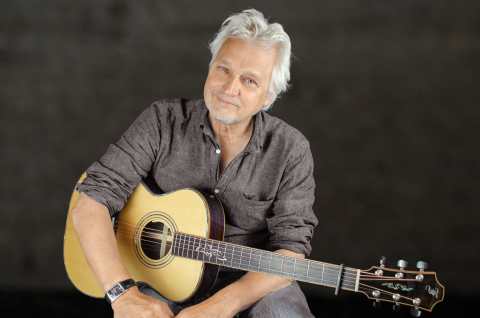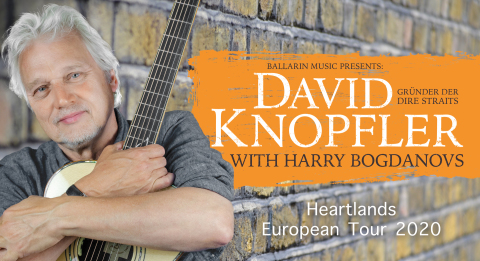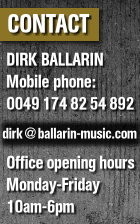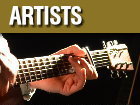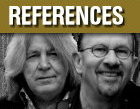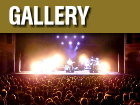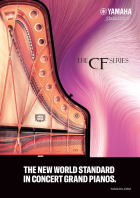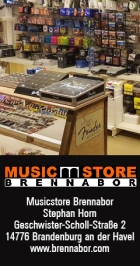INTERVIEW WITH DAVID KNOPFLER
HEARTLANDS TOUR 2020
This is the official tour interview with David Knopfler about the Heartlands European Tour. In January 2020 Dirk Ballarin asked questions
on various topics: new albums, tour 2020, music business today, Jimi Hendrix.
David Knopfler also answers many questions about his past: founding Dire Straits, leaving the band and joining the Rock'n'Roll Hall Of Fame.
In March 2020 you'll play the first concerts since you finished the last tour in 2017. What happened in the last three years? What is the most important news?
DAVID KNOPFLER: I felt I needed to take a time out to focus on my songwriting – and it paid off pretty well in terms of some of the songs. I recorded two albums and I have a third in the pipeline. “Heartlands” is already out – and “Last Train Leaving” (CD18) will follow it shortly.
On Facebook I read a comment that you wanted to retire in 2017. What changed your mind?
DAVID KNOPFLER: I didn’t WANT to retire but as I’m sure you’re aware, the UK has, since June 2016, been digging a very large hole for itself in the shape of Brexit – that’s British Exit from the European Union. I anticipated that once it had happened that touring might get too difficult and problematic to undertake so I took a pause waiting to see what was going to happen. The prospect of going back to complex paperwork with Carnets and maybe Visas too was just too incredibly unhelpful to working musicians to contemplate. It costs thousands of euros in pre-production costs to tour the US – if the same thing happens to the UK/EU relationship – touring will get very difficult for all but the largest stadium bands like the Who.
NEW ALBUM:
In the summer of 2019 with ''Heartlands'' you released your 13thstudio record. What idea and inspiration is behind that album name?
DAVID KNOPFLER: There’s a duality at play. It’s partly about the interior landscape – the process of living, its stages, and the business of the heart. But it’s also of course a literal place both in the US and UK – I imagine in fact most countries come to that. I spent five years travelling back and forth to the Mid West in America where I had a house – so quite a lot of the songs have this referenced politically, geographically… and emotionally. And there’s also a song on the Heartlands album titled “Heartlands.” It seemed like the natural organic choice for the album.
Is it true that you recorded most of the music at home?
DAVID KNOPFLER: Actually we kicked things off in a recording studio in France initially with my regular band - Harry Bogdanovs, Pete Shaw and Martin Ditcham. We recorded a few tracks there and then I brought those recordings all back to my own studio to work on further. We got lucky with a quite famous French accordionist who we met in the local restaurant so he features on one track… He very generously didn’t want a fee for it. All this easy free movement of people and recordings of course is now under threat because of this lunacy of Brexit.
You are an artist who connects his private life with the lyrics of his songs very closely. With ''Waiting For The Call'' you have recorded a very personal song. Are you not afraid that this could be too much public?
DAVID KNOPFLER: If you don’t take risks – you don’t capture the magic. My mother was very close to death and I think I wrote it partly with her in mind but also with a close friend in mind - who had lost his mother. When you work in service to poetic HONESTY if you like it can sometimes rewards you with occasional treasure. That’s just the process artists go through. The lyrics might be personal to me but if it’s a good song it should resonate with other listeners who bring their life experience and their sensibilities to bear on the work. It’s one of the wonderful things about bringing a song into the world that everyone experiences it uniquely.
And will you play it live on tour?
DAVID KNOPFLER: Maybe… We’ll have to wait and see… I’m releasing another album called “Last Train Leaving” any day now and those tracks will also need to be considered for inclusion. I’ve now got a catalogue of work going back forty years and a generous proportion of the show will also be dedicated to older and more familiar songs. You can’t bombard people with too much new material.
I read you have played with the same rhythm group again: Martin Ditcham (Chris Rea, Tina Turner, Rolling Stones, ...) on drums and Pete Shaw (Chris Rea, Mary Black, ...) on bass. How was the recording session?
DAVID KNOPFLER: We always have a really good time recording – Working with musicians of the caliber of Harry Bogdanovs, Martin and Pete is SUCH a gift to the soul. It’s I am incredibly lucky to have them both as friends and as musicians. Get togethers are always just a joy.
ON TOUR
What is new for the ''Heartlands'' Tour of 2020? Any surprises in the new program what you would like to mention? What specials can the audience expect?
DAVID KNOPFLER: A good live show needs a rich mixture of elements – You can’t force too many ballads into a set … There IS room for some gravitas… but you also need joy and humour - in fact you need a wide range of musical moods to make a well rounded show. I want my audience to leave uplifted. I think that’s why so many of them come back again for the next time round.
How do you keep the concerts exciting for yourself?
DAVID KNOPFLER: I’ve never felt the smallest bit jaded whether it’s working in the studio or performing live. Both are equally fun. We are very blessed and get really wonderful appreciative audiences. We are really blessed. In fact I feel like I’m just now finally getting the hang of it. It takes a few decades for some of us to really get seasoned. And time is fast running out now for me – at 67 I really feel I need to make every day a good one and make every show count – You never know when it might be your last one.
MUSIC BUSINESS TODAY:
What do you think about the market for recorded music today?
DAVID KNOPFLER: Well, it’s never been harder for those of us who chose of operate in the margins, so to speak… because the margins have been squeezed. It was easier to make a pretty decent living back then in the 1980s. Now it’s not so easy.
If we look at the sales development of the German music industry (''Musikindustrie in Zahlen 2018'') we can say that we have nearly the same sales as we had in the end of 1980s. But the digital market (streaming and other digital stuff) holds 56.7% of all sales. If you look at the numbers it should be the same. What is your opinion about it? What is the reality behind the numbers?
DAVID KNOPFLER: Streaming generally pays artists much less than CDs. I’m not a fan of MP3s either as a medium and nor of seeing copyrights infringed so disgracefully. It looks now like the eighties when many artists could make a respectable living was just a kind of a blip. The Road is now, I think it’s fair to say, the only profitable element left for most working musicians. I wrote a book around 1994, one of the Bluffers Guide series - “Bluff Your Way in the Rock Music Business” it was called and there is NOTHING I wrote then that has ANY relevance today. The Internet changed EVERYTHING.
ROCK'N'ROLL HALL OF FAME
In 2018 you along with the other former members of Dire Straits were inducted into “the Rock'n'Roll Hall of Fame” in Cleveland. I know that you didn't travel to the celebration but they have sent the award to you to England. Does it have a special place in your home?
DAVID KNOPFLER: Yeah - I have it on a shelf in my studio. The senior chap there I was liaising with unfortunately had a gargantuan ego and a cripplingly unhelpful attitude - and rather astonishingly he outright refused to contemplate covering my travel expenses. And as they earn literally millions from these extravaganzas they put on, it didn’t seem reasonable, or equitable, to not be paying me to get there – I wasn’t looking for a fee I was just looking for my expenses to met and at a really moderate cost and so I declined to go. I did actually receive eventually a really fulsome apology
Can you explain me why this not so important for you and Mark? Most of the people imagine that as a high honor.
DAVID KNOPFLER: My brother didn’t really want to go from the get-go. Like me, I think he’s frankly a lot more interested in his current projects than in playing up to these kinds of commercialized trips to Nostalgia Avenue. It’s not his thing and I totally sympathize with that.
JIMI HENDRIX
Not many people know that you were a fan of Jimi Hendrix. You even visited one of his concerts. Does his playing impacted your music?
DAVID KNOPFLER: I heard Hendrix’s first single a very hip cover of “Hey Joe” – which I bought - and then “Purple Haze” which my brother bought and I was completely smitten. Nothing quite captured and represented 1967 as vividly as the electric psychedelic experience of seeing Hendrix live. I bought all his studio albums that followed. He was at the apex of what seemed to me at the impressionable age of fourteen turning fifteen, COOL writ-large and a God as far as guitar virtuosity went. I don’t think his music is actually really that apparent as a musical influence as such - but as a style guy – yeah absolutely- He was the business. The musical influences for me came more from the likes of Dylan/James Taylor/Van Morrison/Joni Mitchell/CSN etc and then maybe a bit later - later Jackson Browne and Tom Waits.
LEGENDARY PAST
In 2020 it'll be 40 years since you left Dire Straits. Back in 1980 the BBC made a TV documentary with a lot of live scenes and many interviews about the band. It is just my personal impression, but for me it looks like that you guys been burned out pretty much at that time period. Almost no journalists wrote about these facts in the last 40 years. How do you remember that time? It must been hard touring and working nearly all year long?
DAVID KNOPFLER: Yeah – That documentary was directed by my friend Nigel Finch… the late Nigel Finch… talented chap. Yes, this interview was on the back of a remorseless schedule of touring, recording, promotion and huge life changes. Three albums in three years and probably about 600 shows to boot. Burnt out wouldn’t be an unfair description.
In the same BBC documentary you said that ''all the things you read in the music papers about what happens to people and you think that you're immune from that. You assume that because you start from a different place that you won't find yourself going in that direction. And it doesn't seem to be that case.'' Did that legendary Rock'n'Roll life change you somehow? I could image that those hype machines can change every person. How did you save yourself from that?
DAVID KNOPFLER: (Laughs) Several months of fairly intensive psychotherapy – that helped. I suppose, as an ex-social worker, I never really entirely lost sight of what really matters you know… the value of family and friends – not the empty noise and ego-bloating bullshit of the music business. I also was very deeply immersed in my music, frankly, and in developing my skills… so that kept me pretty preoccupied. On the positive side, Dire Straits was also an extraordinary once in a lifetime opportunity - we shouldn’t forget that – it was an opportunity for musical growth I probably wouldn’t have had any other way whatsoever. Would I have had a forty year solo career without Dire Straits? Quite possibly not you know - – I’ve a lot to be thankful for.
Even with the musicians who were in the band after I left, guys like Hal Lindes and Chris White, Alan Clark – there’s a kind of unspoken camaraderie between us - an understanding between us. Professional musicians in general are really much more of a community of shared positive values, than just pawns to the corporate circus – this horse race that it’s presented as. We get it… you know? We do get it. We’ve been there – we’ve done it – We’ve seen it and here’s not very much you can teach us anymore about how these things are put together and what goes on.
Your first solo record ''Release'' came in 1983. Did you really work three years on that record?
DAVID KNOPFLER: Yes – in the US for months and then in the UK. My lifelong collaboration with Harry Bogdanoves began with that first solo album. Lots of happy memories.
FOUNDING OF DIRE STRAITS
Very often I read in the internet different versions about the founding of Dire Straits. I insume there is no doubt, if you say that you founded the band - you founded the band.
I'm in a worry about the written down history. Everything is influenced by the internet today. First someone who probably never ever met an original bandmember is posting his own version (e.g. on Wikipedia). After many people has copied it the incorrect version become Rock'n'Roll history. On that way a wrong information can stay in people's memories forever. I would like to ask you. What does really happend in the late 1970s?
DAVID KNOPFLER: Dire Straits is awash with urban myths about the bands early days… many are inaccurate and some are downright false. However before we even start with the way that Chinese whispers and rumours have distorted the facts, we also have to deal with a recognised actors' syndrome. Ask the actor who plays Claudius in Hamlet what the play is about and he’ll say it’s about a King who murders his brother and takes his crown and winds up killed by his nephew. Ask the actress playing Ophelia and she’ll say it’s about a young girl who gets into a relationship with a prince only for the prince to murder her father and her brother. We all tend to see events from our own perspectives.
From my perspective I founded Dire Straits. It goes like this: I was sharing a flat with John Illsley, who would become the bass player for Dire Straits. He was using our shared flat to rehearse with a not very good punky-band on a Tuesday night… which was no fun to come home to after a hard day of social work.
I had previously been sharing a flat with my brother while the songs for the first DS album were being written. Mark and I would play acoustic guitars together every evening, and consequently new songs were emerging. We also performed at a local festival as a duo.
Mark was also playing electric guitar with a covers band called The Cafe Racers and I also did one show with them. I thought that if I could introduce Mark to John and they hit it off - and if a drummer could be found, we’d have ourselves a better band and John would ditch the other band... and that’s exactly what happened.
Mark brought in Pick and we all rehearsed in the flat that John and I shared on the Crossfields Estate in Deptford SE London.
No doubt Mark’s version places himself as the central character as would John’, as would Pick’s - there was a trio looking for a drummer etc. There is no one complete version. All are valid.
Thank you very much. I wish you good luck with the new record and the tour.
DAVID KNOPFLER: Thank you – I’m looking forward to it.
January 2020
Interview partner: Dirk Ballarin


